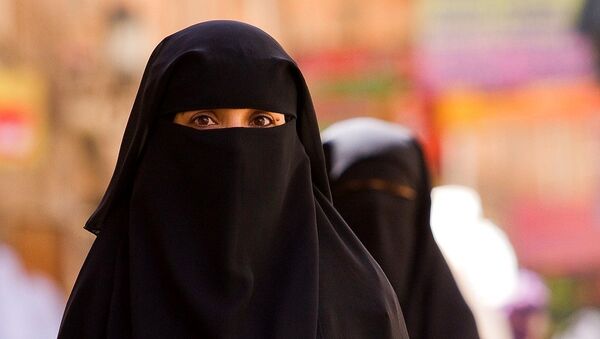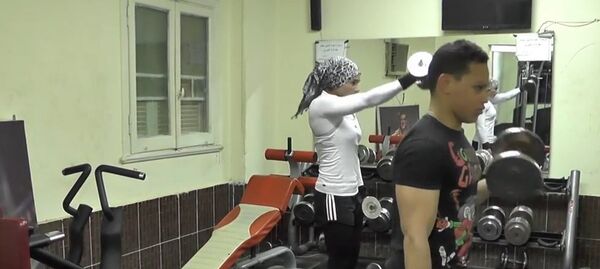The young woman named Nora Illi comes from Switzerland and converted to Islam when she was 18. Her participation in the show was supposed to make the TV program unbiased and objective, but instead caused severe criticism among other guests and German media outlets.
The statement has been perceived by many as quite controversial in itself, but the most heated debate was prompted by Illi's essay on the issue of young people fleeing to Syria to wage jihad.
In an essay published online back in 2014 she expressed understanding for young Muslims who felt discriminated and therefore joined Islamist groups in the Middle East.
"First of all, it is important to understand that young people often have a strong tendency towards idealism. They want to prove themselves, help others, create justice in the world, etc.," she wrote in the article.
"Muslims are exposed to most massive reprisals around the world. […] It is no wonder then that they have a temptation to break out of this misery and […] fight for justice. From the Islamic perspective, it shouldn't be ignored. Such a conviction must be praised as a civil courage, given the local context," she continued.
Illi's essay horrified Western readers and caused heated debated during the show.
"This is propaganda, you can't do that on public television," another guest, Ahmad Mansour, said, commenting on Illi's essay and her statements.
Although the TV channel explained that the woman's presence was necessary to represent different perspectives on the issue, many politicians and media outlets have expressed their criticism after the broadcast.
"I think it is quite adventurous to offer such a platform to the radical Islam," German politician and CDU member Sebastian Steineke posted in his twitter.
Dass man im Fernsehen dem radikalen Islam eine solche Plattform bietet finde ich abenteuerlich! #annewill #nilli https://t.co/Ylxb4uM3AS
— Sebastian Steineke (@SteinekeCDU) 7. November 2016
For its turn, Frankfurter Allgemeine Zeitung called the young woman "a perfect propagandist" who presents women's oppression as a freedom," while German newspaper Das Bild labeled the show as a "TV scandal."
"We shouldn't hide, let others talk about us. Such stereotypes which are often attributed to a Muslim woman: immaturity, oppression and etc., can only be dispersed by the participation in public discourse," the woman stated.




